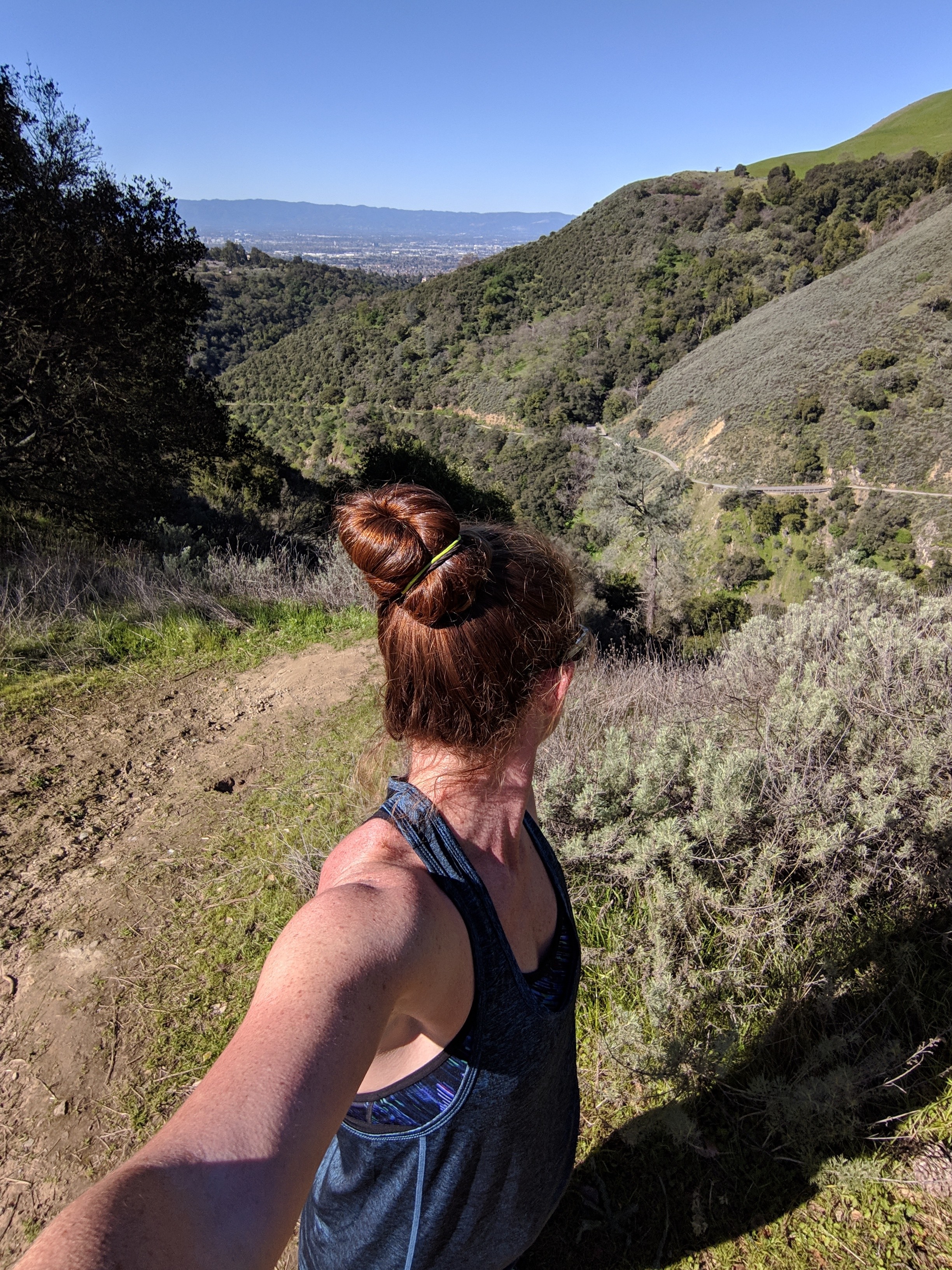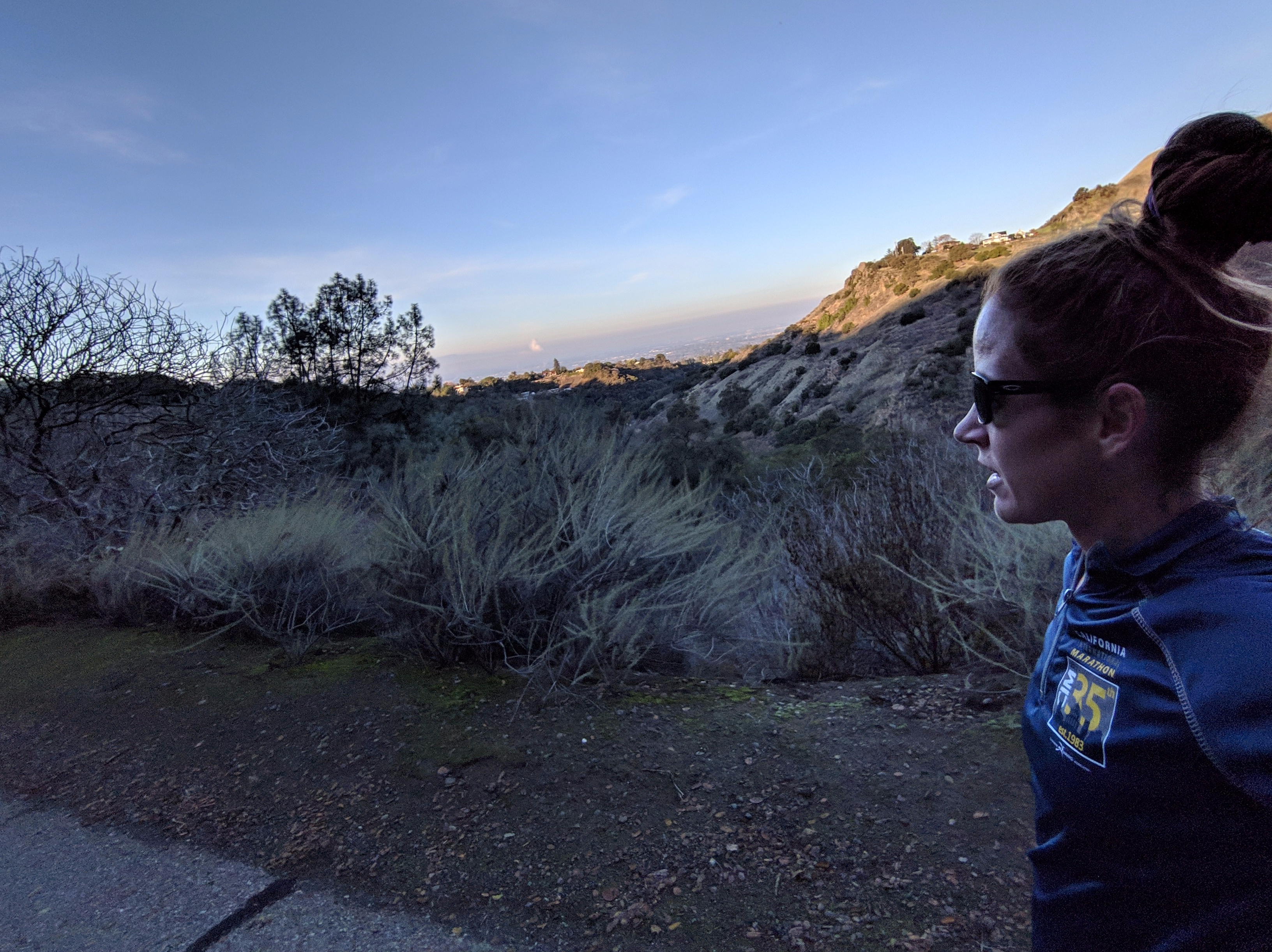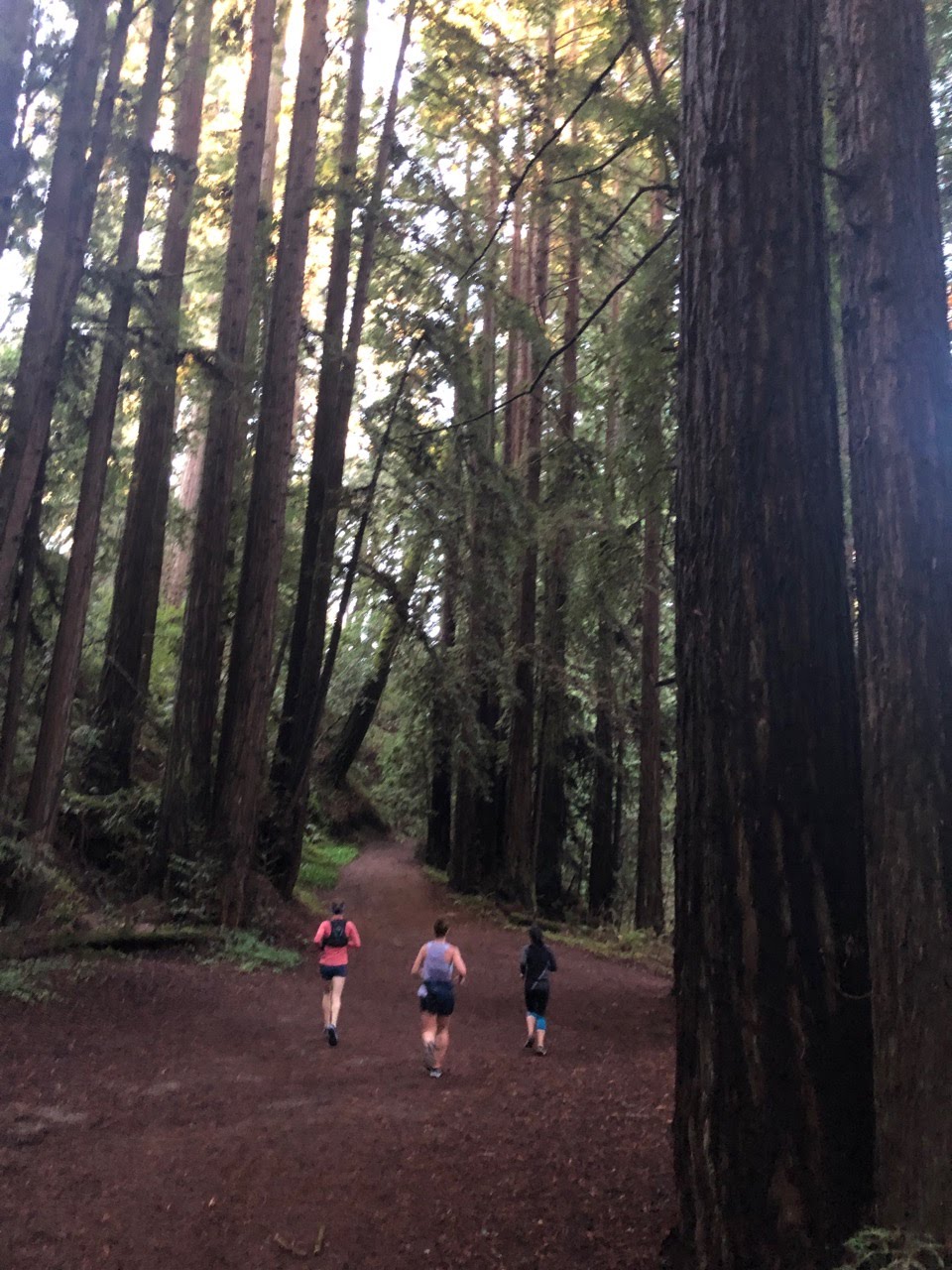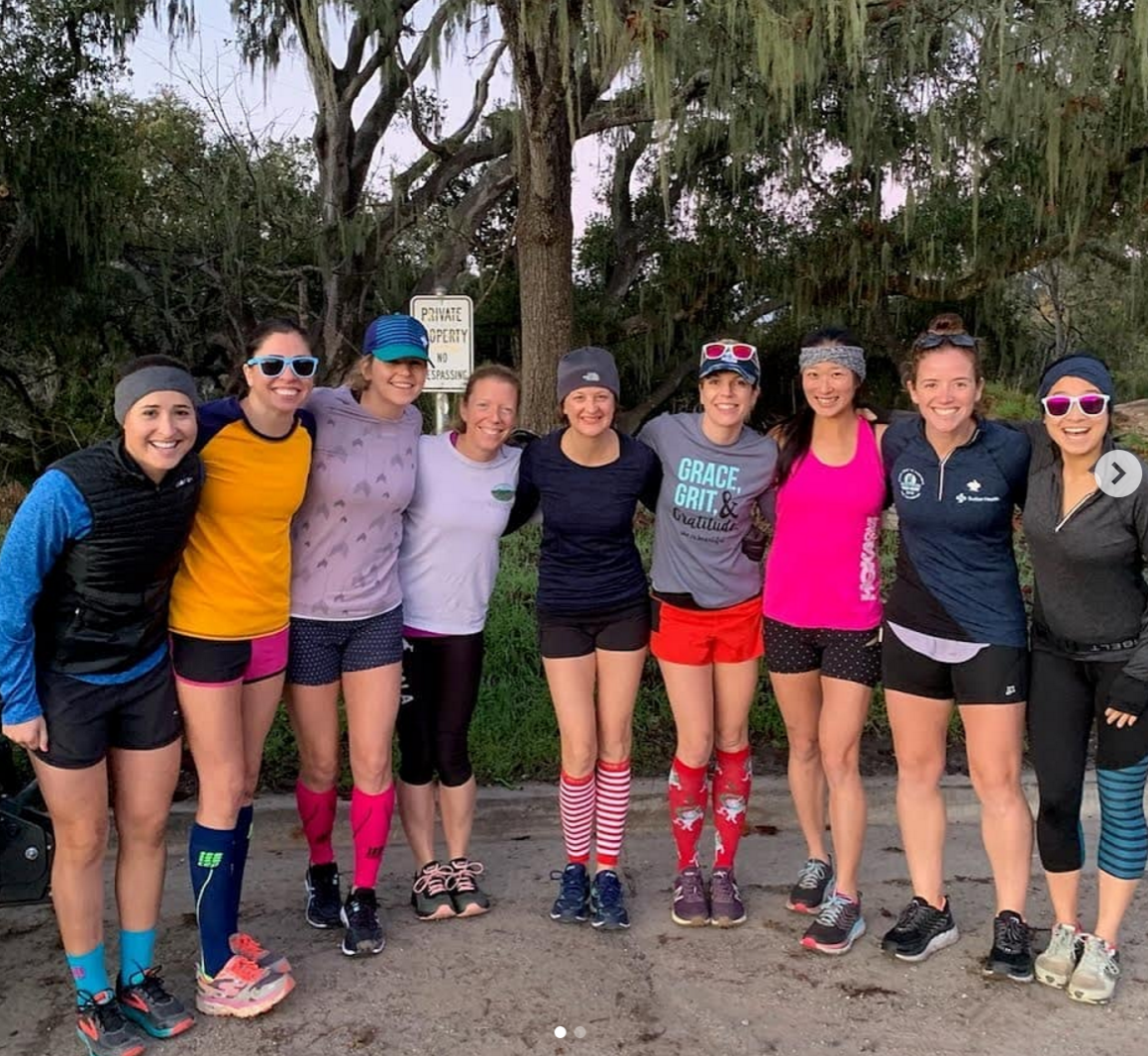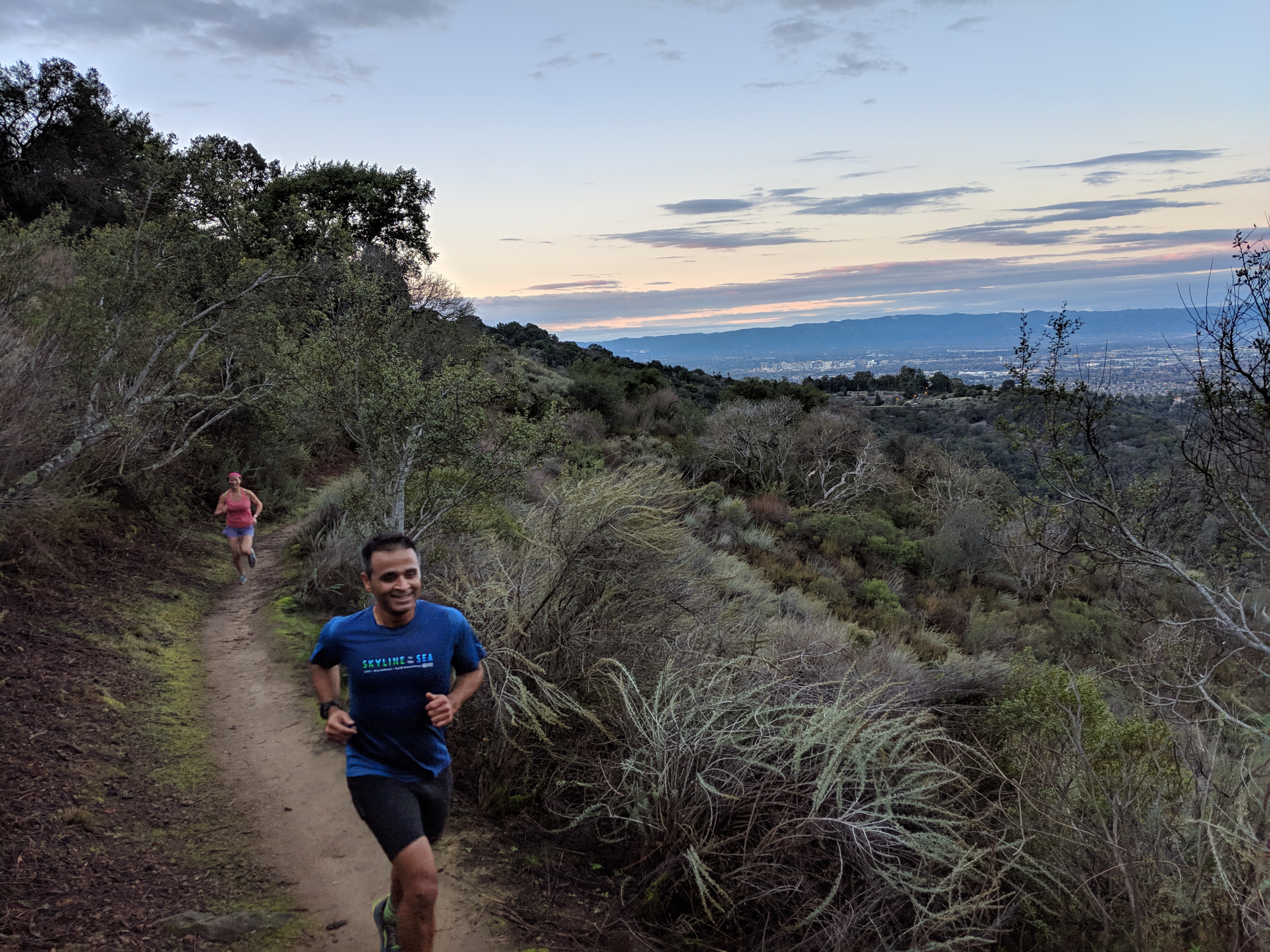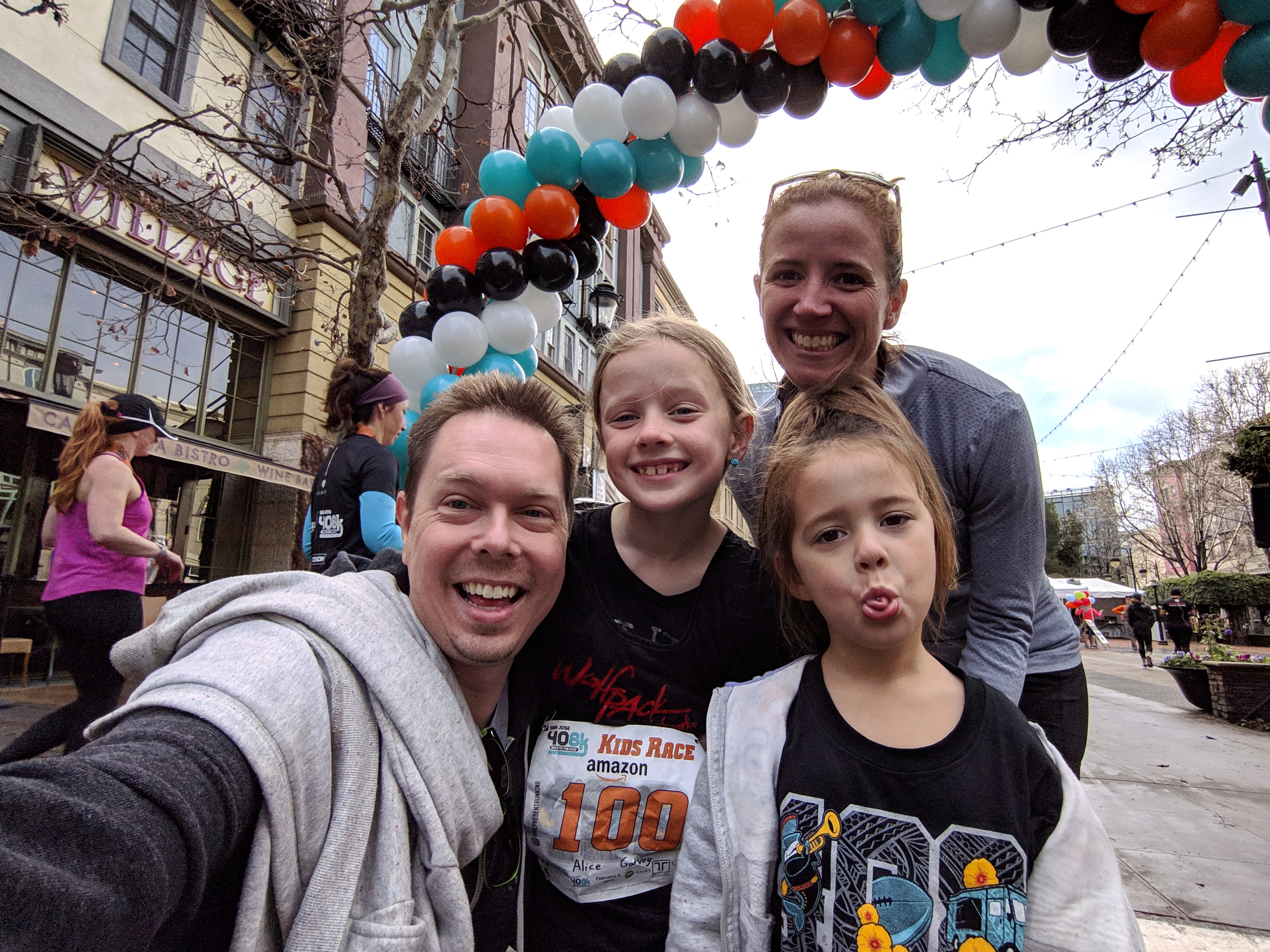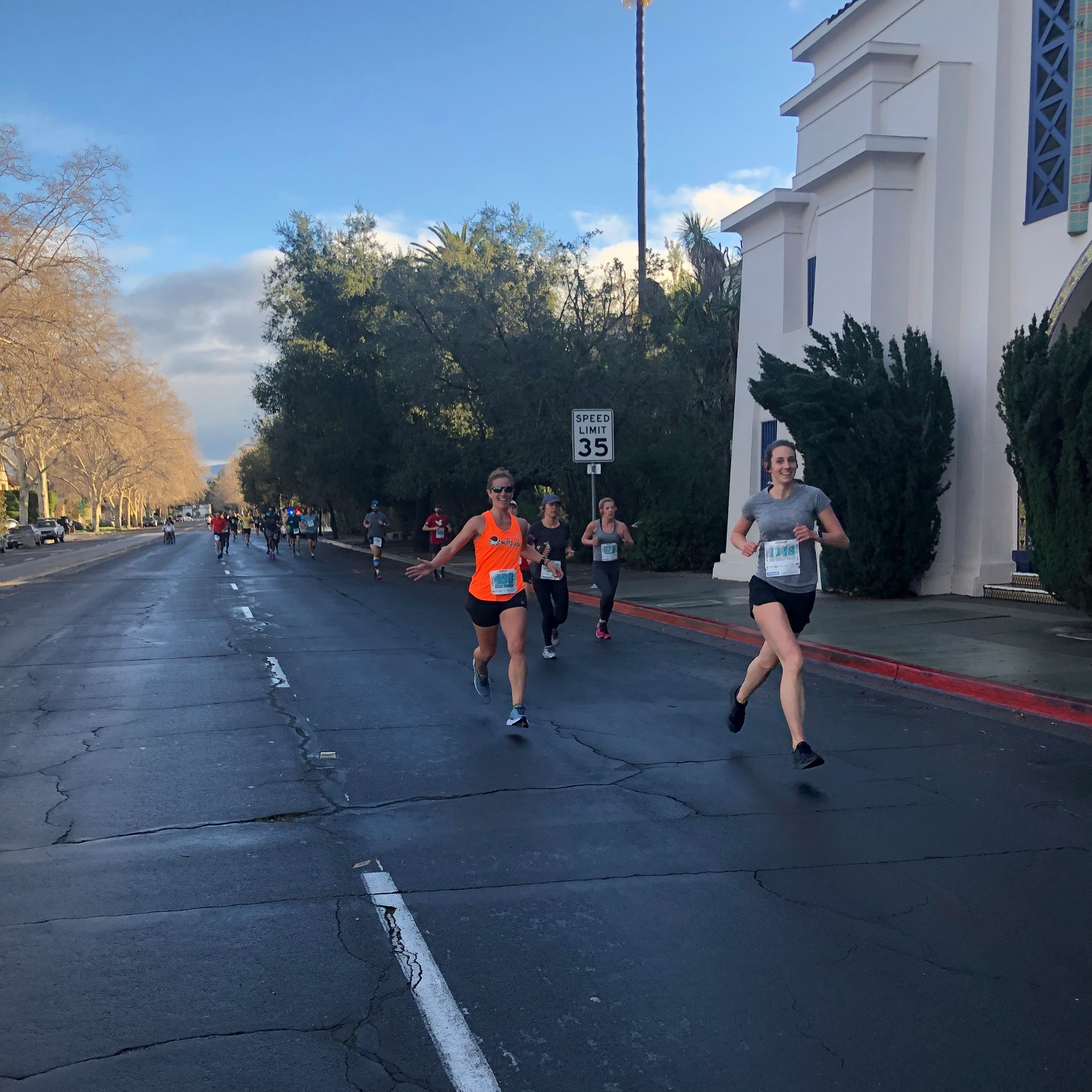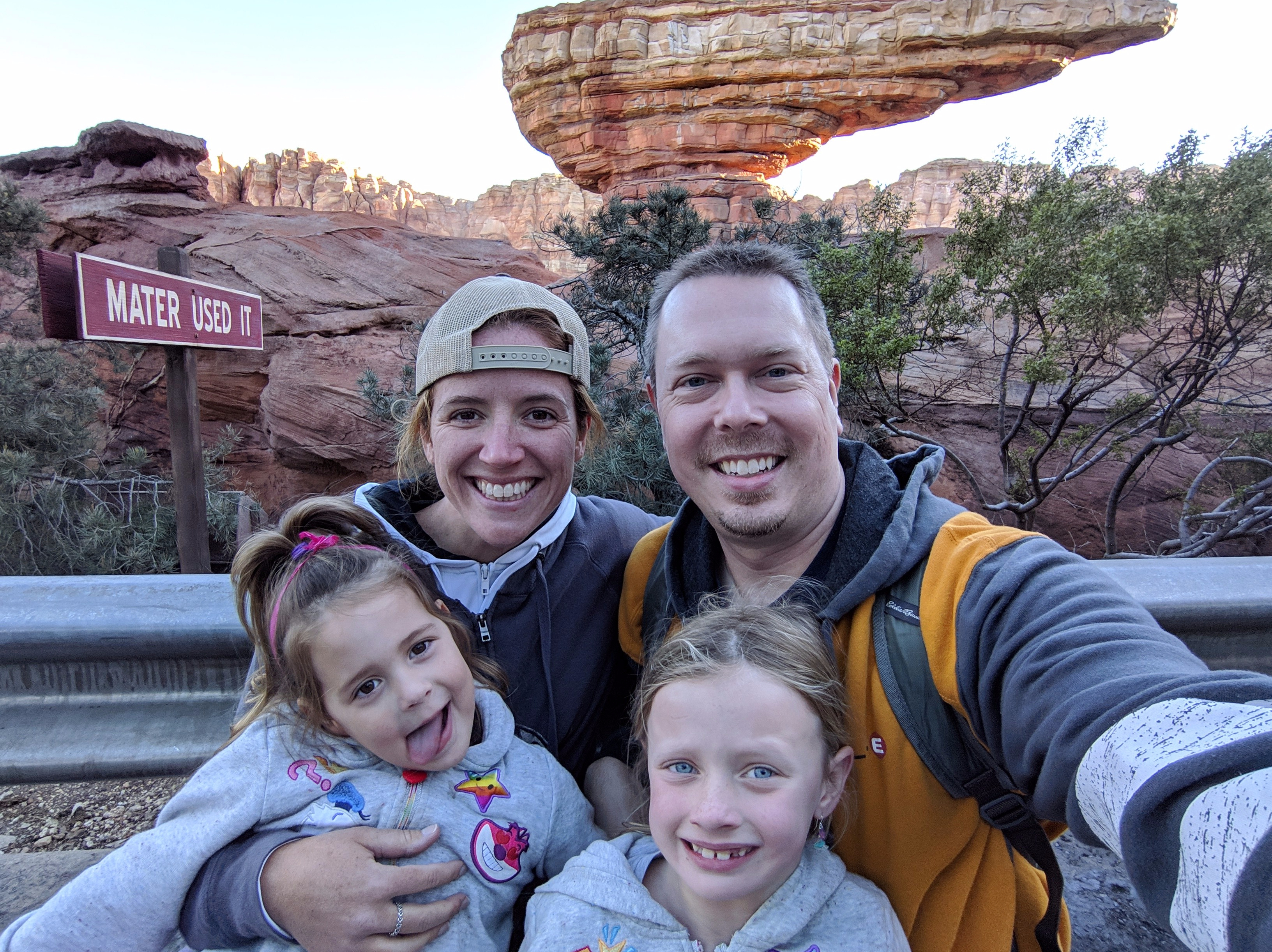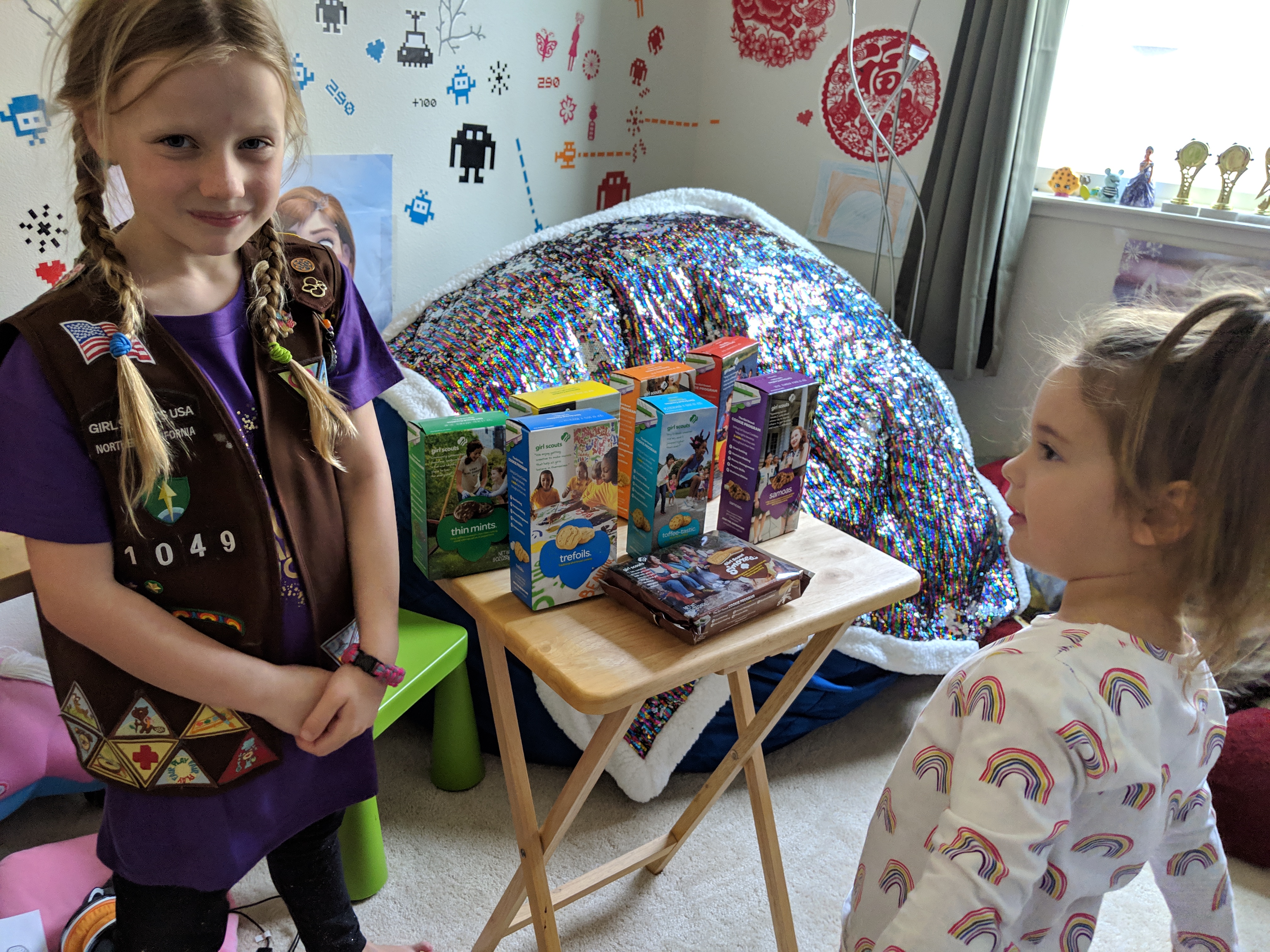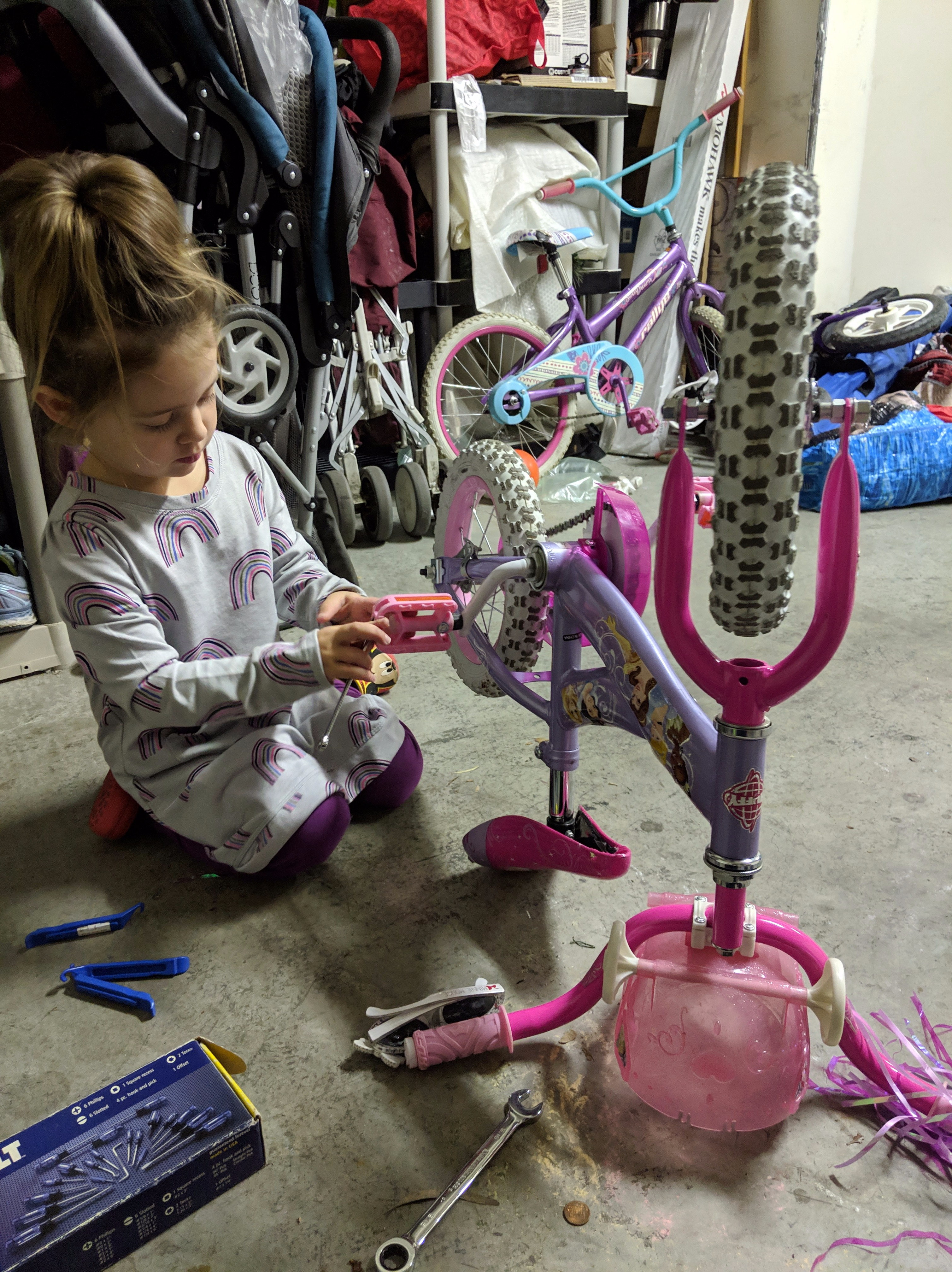Book Review: Megan and David Roche’s _The Happy Runner_
“No one gives a crap about your marathon PR.
No one cares how many races you have run or how well you placed.
…
The ego monster can never be satisfied, like a virus that has to kill the host. The finish line drug requires bigger and bigger doses to get you high, and eventually it might kill your love of running (and your love of self) entirely.” (5)
Well, crap. Just days after CIM 2018, when David and Dr. Megan Roche’s anticipated book, The Happy Runner, finally arrived to my door, those words were precisely what I did not want to be reading. I was in the thickest, heaviest, and deepest trenches of the post-marathon blues, I guess, simultaneously tinged with anger, disappointment, and sadness over how I envisioned my race panning out and what actually transpired.
Seeing in writing the reminder of what I have always (emphasis necessary) known to be true — that no one will ever care about my running as much as I do — stung, and I was unabashedly rubbing copious amounts of salt into the wound as I ruminated on how, yet again, I had managed to come up short of my marathon goal and run my second marathon of the year in a time frustratingly distant from what I aimed to post. The Academy should have come knockin’ because my performance was impressive.
-
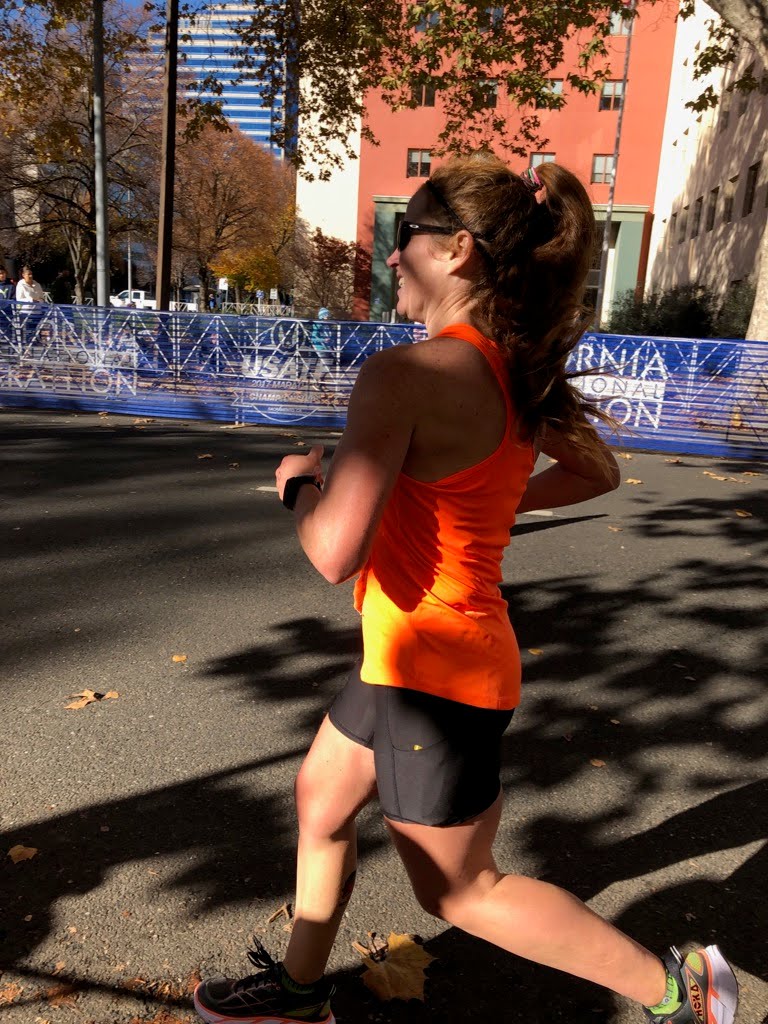
closing in and already in the mental minefield
As I made it through the first chapter of THR, aptly entitled “Embrace the Process,” I finally decided that I wasn’t in a good mental space for the book — at present, anyway. I wanted to be disappointed and upset, and I wanted to rebuff every claim and argument Megan and David were saying about embracing the process and loving the experience of running and not being so hung-up on realizing goals all the damn time. I love the process of marathon training; that’s why I do it! But I can still be upset about not racing well, can’t I? I don’t care *too* much, do I? I am a happy runner! And so on and so forth. After every line I read from the book, an annoying voice screaming yeah, but, but but…! echoed in my head. Rationally, I 100% knew and agreed with every claim the Roches were making throughout their book, but in a disappointed post-marathon-haze, emotion — not logic — reigned supreme. I didn’t want to hear what I knew I needed to hear.
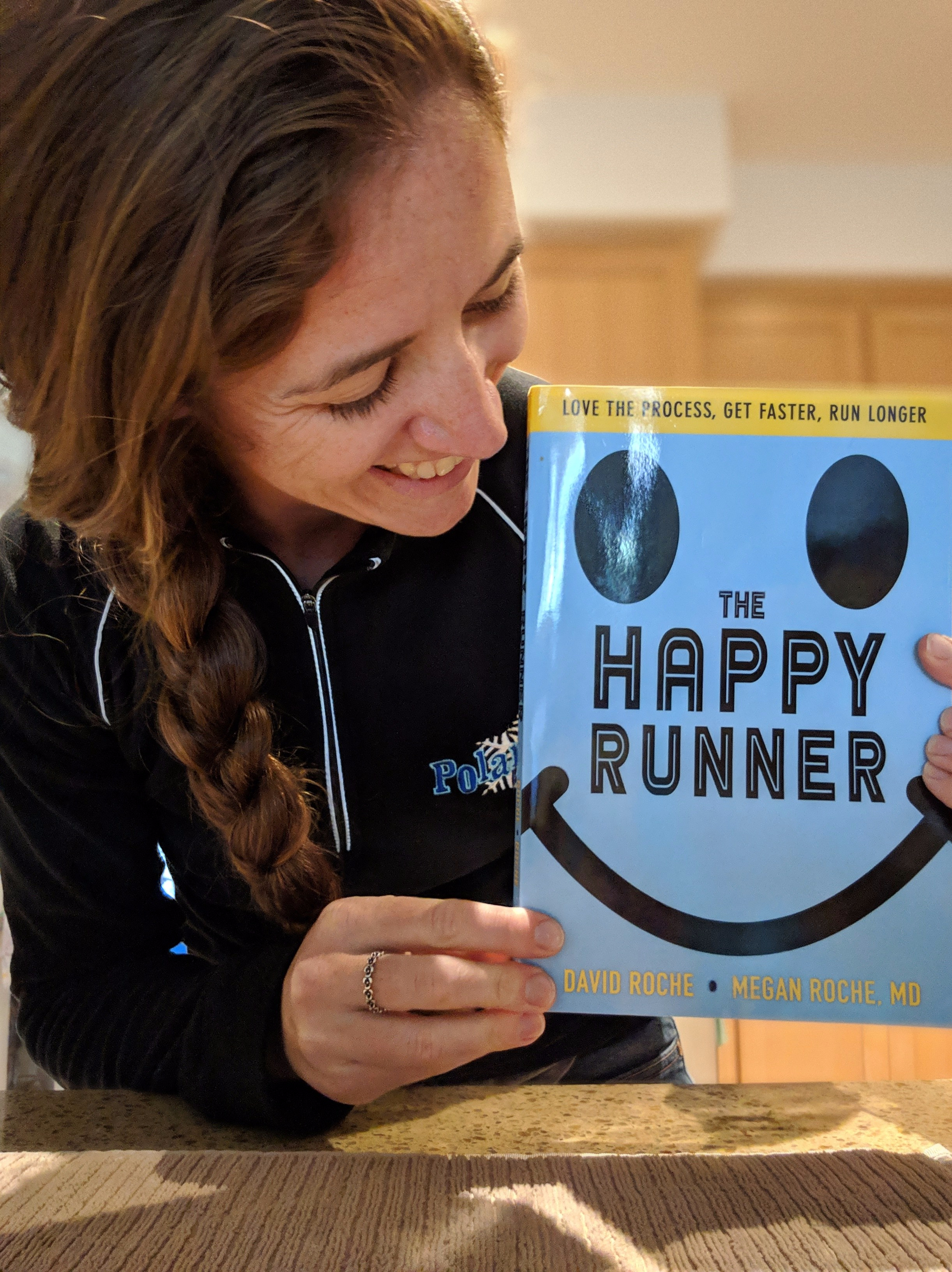
It wasn’t until a good month or so after CIM that I finally settled back in with the Roches and tore through their commentary. A month post-marathon, the second-guessing and teeny-picture thinking was finally behind me, and I could finally read their book without a little voice in my head trying to contest each of their claims. Let me assure you: when you can read a book without part of you getting combative, territorial, or argumentative, it makes for a far more pleasurable reading experience.
A step back: social media makes the world a pretty small place, and I think this is especially true within the running community. Even if you don’t know the Roches, personally, it’s likely that you know who they are or even may know people who are coached by them, particularly if you’re Bay Area- or Boulder-based. David, an environmental attorney turned full-time coach and world-class professional trail athlete for Hoka One One, among other stuff, is the yin to his wife, Megan’s, yang, with Megan being a Stanford-trained MD, also a world-class professional trail athlete for Hoka One One, and a bunch of other stuff, and part two of the Roche-run Some Work, All Play (SWAP) coaching team.
Prior to reading their book, I had followed them for years on Strava (and found it heartening that when I was running at 4am during the week years ago, so, too, was Megan — and often in very tight ovals, very quickly) and on Instagram. You can’t talk about the Roches without talking about their dog, Addie, who also makes for an entertaining (if not also a bit unstable) narrator throughout THR. They’re good people. I think at one point I was telling Megan on Strava that she should go into pediatrics because she’d be great with kids (totally normal things to say to professional runners on Strava whom you don’t personally know, right?). They’re intelligent, deeply talented, and very human professional athletes.

Anyway, the Roches are known for all sorts of running accolades, too many to name here, but they’re also known for being badasses within the trail and/or trail ultrarunning community, being super quirky, silly, and down to earth, and (perhaps mostly through their pup) for reminding all of us to not take ourselves so seriously and to remember to see the forest through the trees with all things in life, in general, but also in running, specifically. That’s kinda who they are and when it comes down to it, what the essence of The Happy Runner is all about.
Zoom out. See the big picture. Behold the brevity of life.
Even if it’s your literal job, the thing that allows you to pay your mortgage each month, running is but one small piece of the life puzzle.
Zoom out — way, way out. It’s better up here.
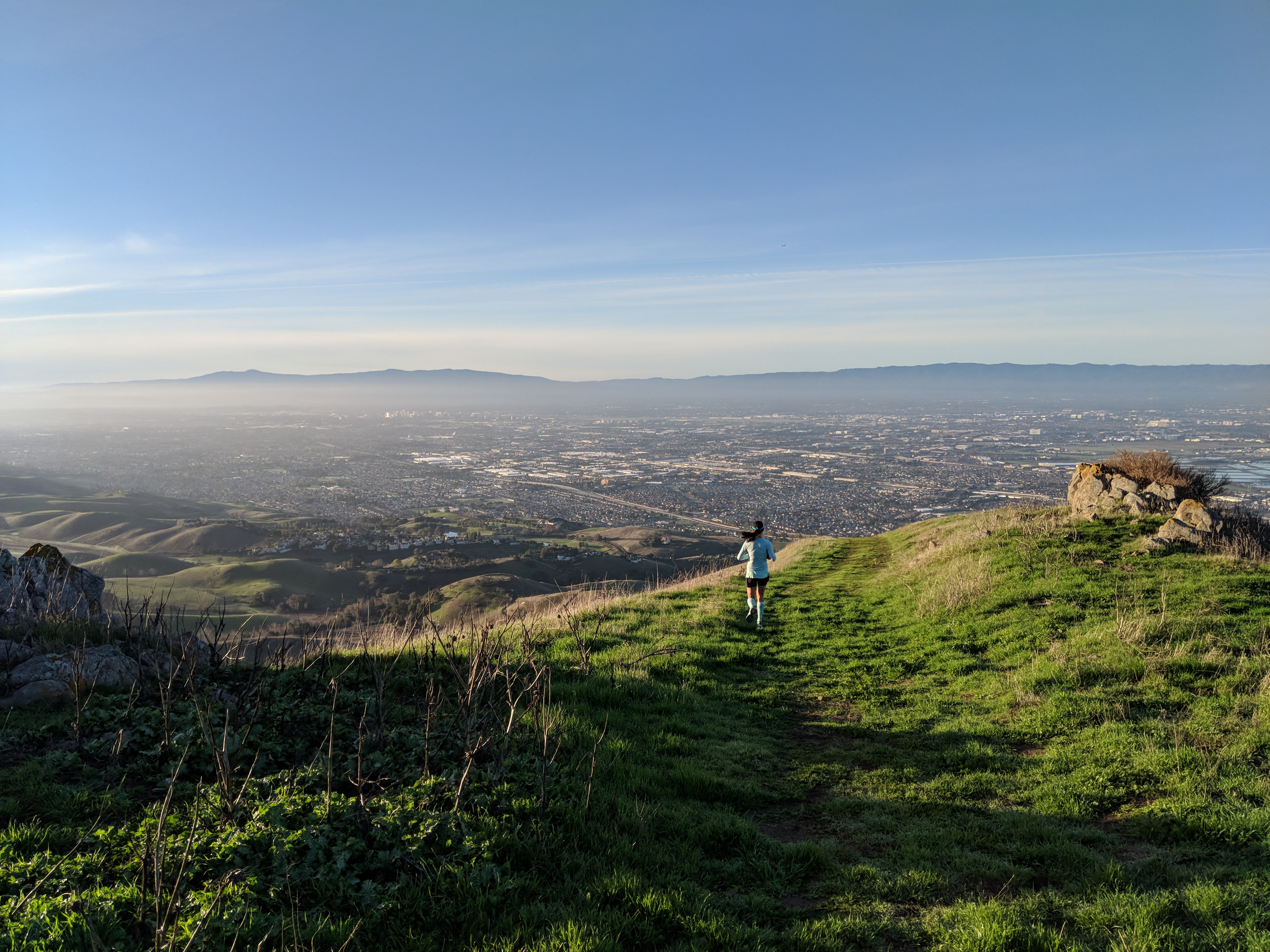
Back to my navel-gazing, post-CIM dramatics. Marathons have a way of leaving you feeling pretty vulnerable, if not also pretty raw. When you’re training for a marathon, and especially when you’re racing one, I think that the miles become part of you and part of your “story,” however you want to define it. When things go well with marathon training and on race day, there’s really no other feeling like it. You know the work that you’ve put in and all the multitudinous externalities over which you had no control that all somehow (magically) coalesced and fell into place on the day when it mattered most. And of course, even if training goes well and you hit the marathon out of the park, as runners are wont to do, post-race our feeble hamster brains go on overdrive and begin hypothesizing that if I do a little bit more ______ in my training next time and a little less ______ instead then maybe that’ll all help me breakthrough because why rest on our laurels and ever be satisfied? Neither Angelica Schuyler nor runners ever are.
Naturally, the opposite, and more likely, scenario that arises with marathon training and racing is that stuff doesn’t go perfectly, and suddenly, training and racing becomes more of an exercise in time/stress/externalities management than anything else. It is frustrating beyond all measure to show up to race only to have it all come undone partway through — for any number of reasons, some within and some beyond our own, individual control — and when it’s all said and done, we’re often left wondering why do I do this to myself, feeling salty and bitter for the next few weeks of recovery before we (perhaps begrudgingly) take a deep breath and sign up for a redux, another chance, another opportunity to realize the dream deferred.
When the marathon is good, my god, it is so good, but when it’s bad, it’s just … soul-crushing.
THR talks about running in those terms (though typically couched within the parlance of trail and/or ultra running, since that’s the authors’ wheelhouse, but everything they say still applies to roads, marathons, and shorter distance stuff). The authors, after all, are really accomplished runners, so they — if anyone — totally get the volatility and emotional turbulence that hangs around like an unwanted third wheel in our relationship with running. I think that it’s in the Roches’ down-to-earth approach to their relationship with running — but first, their relationship with themselves, as individuals — that I found their book to be so deeply relatable. This genre is rife with literature about authors who “found themselves” with and through running, and while that’s (sorta) the case here, too, THR goes so much farther and deeper than that.
I can’t say that THR flies in the face of everything that you’ve probably been told or taught about running, racing, and training; however, I can say that the Roches’ commentary throughout this book could substitute for an uber-honest friend, the training partner of your dreams, who reminds you when to sweat the details and when to throw your hands in the air and bask in your high levels of IDGAFness. It’s cool! There are times you absolutely should care and worry and stress, but more often than not, you probably shouldn’t. Interspersed throughout the book’s two parts — “the happy runner rules” and “the happy runner training principles” — are nine chapters that will likely challenge you on at least some level. None of us particularly enjoy reading views that are (perhaps) a little antagonistic to our own, but that’s precisely why we should be reading them. Truthbombs abound!
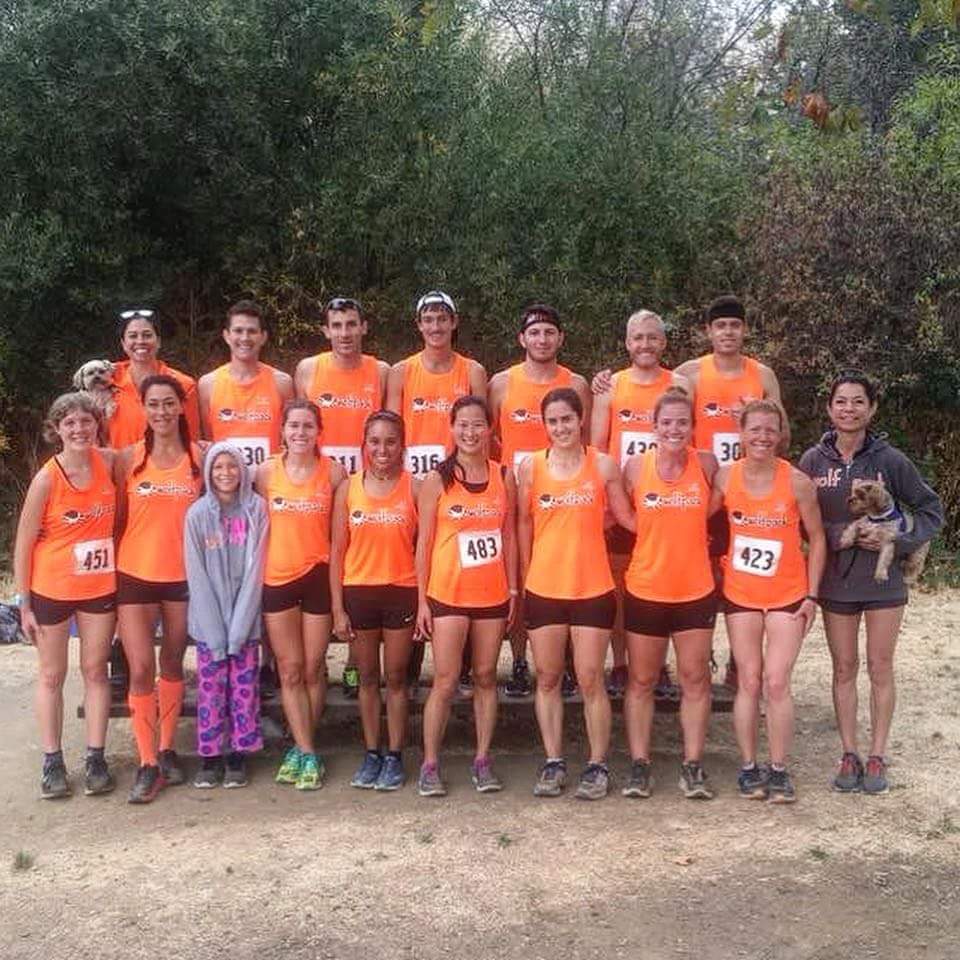
David and Megan spend the first half of the book basically imploring runners to run with joy because really — realistically — at the end of the day, if you’re not having fun, and you used to have fun, then something’s awry. KonMari this sh-t and ask yourself if your running sparks joy for you and if not, then reflect why. What the Roches are really after is to challenge each of us to take a step back, get inside our own heads for a bit (scary, perhaps, but necessary), and strip away any sort of expectation that we place upon ourselves when we run. I used to run all my training runs at sub-7s and now I’m barely holding onto 9s; it doesn’t matter! No one cares! You’re no less of a runner now than you were X number of years ago! Embracing the process and knowing your “why” are two essential elements that can help to supercharge your running and get you out of a funk, according to Team Roche. You don’t have to be a multi-decades-seasoned runner to know that sometimes you’ll have great days, good days, and bad days, but sometimes, we runners — regardless of experience level– get so fixated in the minutiae of training that we fail to remember that one bad workout does not a horrible race make and vice-versa.
Basically: we’ve got to stop overthinking this stuff. If you’re not having fun, recalibrate. You owe it to yourself.

Before getting into their so-called “happy runner” training principles, the authors also spend a lot of time imploring us, again, to not take ourselves so seriously and to “power yourself with kindness” (61). Everyone is a friend — including THE COMPETITION! (cue the foreboding duh duh duuuuuuuuh)– and strangers are just friends we haven’t met yet. Be kind to yourself, talk to yourself how you would talk to your best friend — you know how it goes. Sometimes we (again) get so wrapped up in WORKING SO HARD FOR OUR GOALZZZZZZ that we lose touch with reality, with the numerous opportunities we have to engage with our peers and community. Megan, in particular, talks a lot in this section about how she used to view competitors and how her paradigm shift made for such a different racing and training experience, and I think it’s something from which we can all learn. I mean, again: if one of the world’s best runners realized that she could run better and more happily (both of which, in turn, positively affected other aspects of her non-running life) by changing her outlook towards others, then I think the rest of us minions and age groupers should pay attention.
Ultimately, ideally, we should never be so busy or working so hard in a workout that we can’t be bothered to give another runner in the opposite direction a quick side-five, a “you rock!,” or even a simple head nod; a little can go a long way. Hell, even in the throes of competition, when we recognize that we can work with our competition and both come out ahead in the end, suddenly, the racing environment becomes a lot less scary and cut-throat and a lot more personal and companionate. The same goes for enthusiasm, too; that stuff is contagious. A smile, a “you’re doing so great!” mid-race, or even a quick “great job going after your goals today and being a fantastic human” comment on a Strava activity can all go a long way. We’re all in this together, sings Zac Efron and Vanessa Hudgens, and we’re better when we’re together. It’s science.
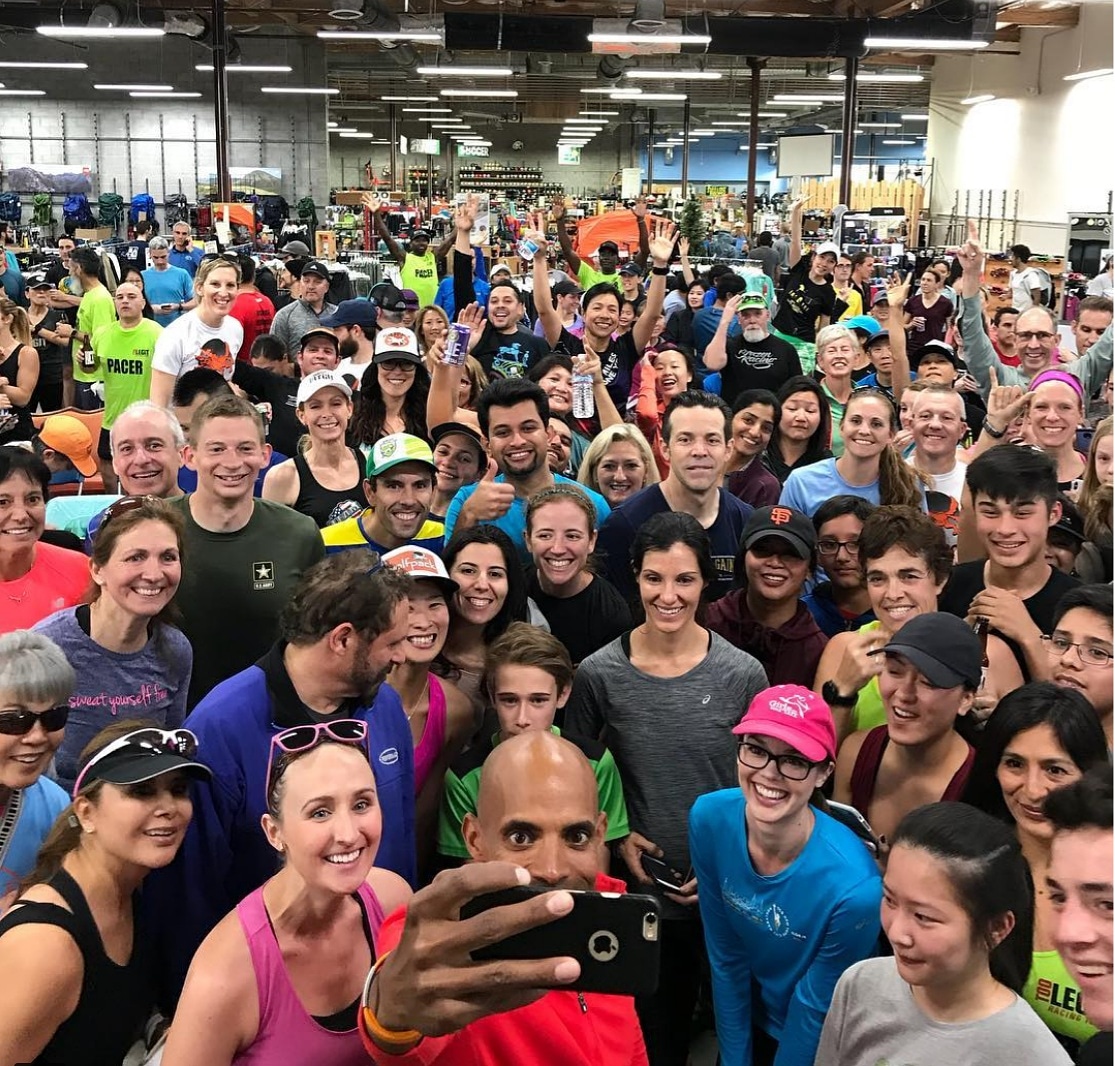
Importantly, the Roches, for as (obviously) accomplished and talented as they are, make it quite clear that while yes, sometimes running is all rainbows and unicorns, most of the time, it’s not, and that’s ok. THR emphasizes that “this book is all about zooming out and finding a framework for unconditional self-acceptance in your running life. Sometimes, though, that is impossible” (92). As they explain, it’s ridiculously easy to profess that we can choose to be happy in our lives, irrespective of the relative shitstorm that may be slowly engulfing us, but the truth of the matter is that we are doing ourselves a horrendous disservice by believing that.
Basically: it’s ok to not be okay. Sometimes, stuff just sucks, and sometimes, we feel more like we’re drowning than treading water. That’s ok. It doesn’t make you inferior.
Based solely on the media I consume, there seems to be a slowly-shifting paradigm change afoot with more and more people — everyday Janes and Joes on the internet, as well as the celebrity folk — talking about their struggles with mental illness (Rob Krar and Brad Stulberg come to mind right away). While it’s definitely unfortunate that so many people are dealing with these types of health issues, normalizing their illnesses by talking about them is one of the best things those afflicted can be doing. I think it’s fantastic that David and Megan spent as much time as they did talking about this stuff because it definitely seeps into a lot of runners’ lives and undoubtedly affects their ability to run. It can be hard to love yourself and to accept yourself if you think you’re part of the problem, after all.
Finally, before THR pivots into training principles, which I won’t talk about here (but still highly suggest you get the book and read cover to cover because their words are typographical gold), the Roches implore us to, again, remember the big picture:
You are enough. You are perfect. You love you some you, and you love everyone else too.
Philosophy and science mostly agree on the idea that there is no inherent, proven, objective definition of “enough” or “perfect.” They are undefined impossibilities. So maybe, over time, with practice, you can begin to make your own definition that applies to you, a universal truth in your own head.
What is perfect? What is enough?
It’s wherever you are right now. And now. And now.
WE LOVE YOU.
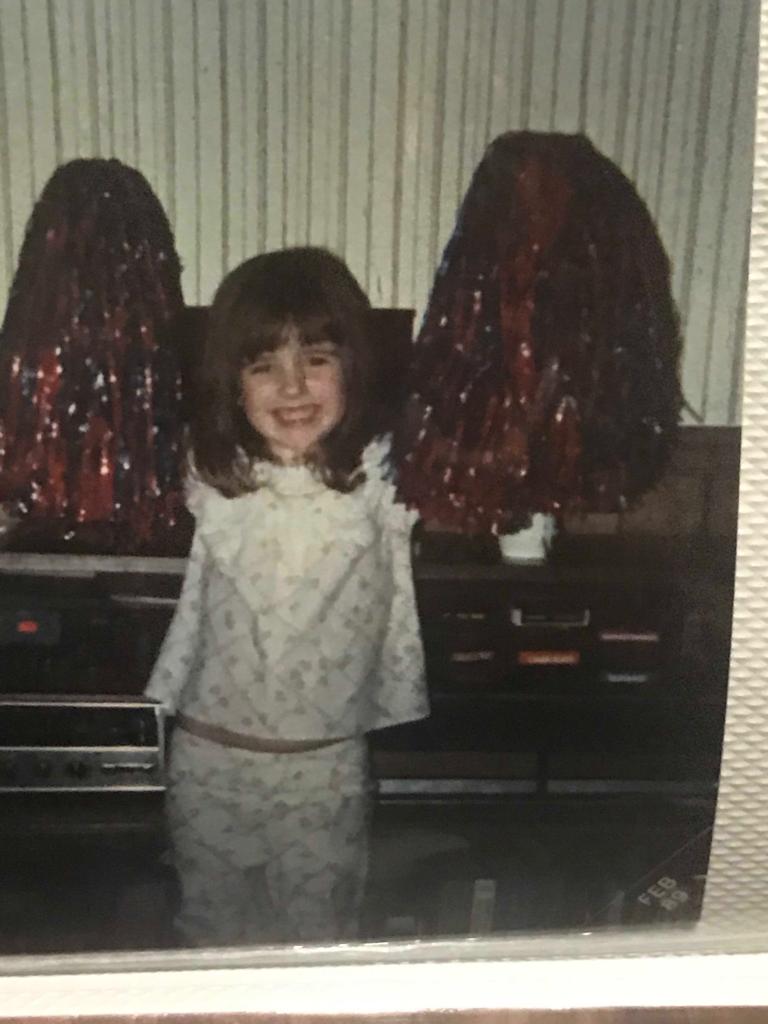
It’s hippy-dippy, kum-bah-yah runner banter to the nines, but man, it’s beautiful, isn’t it? Like the human experience, running can be (is!) messy and complicated and heartbreaking, for sure, but there’s so much to it that can take our breath away (literally or figuratively, you pick), leave us awestruck, and kindle feelings of sheer, unadulterated joy, too, sometimes all in the same run.
Remembering all of this and acknowledging all these seemingly-contradictory realities will allow us to run freely, and it’s when we untether ourselves from ourselves, really, and all our preconceived notions and expectations, that we can become happy runners after all.
I don’t know that I could enjoy this book more than I already do — in fact, it’s the only book I’ve bought for myself in recent history — and I read it at a time when I needed to be reminded of the message the most. I won’t say that I lost that lovin’ feeling with running in 2018, but I will freely admit when I was disappointed with my results last year — which was often the case — my views toward my running were fixating moreso at single trees here and there than the entire forestry surrounding me.
As I begin to train for my 34th marathon and as I begin to conceptualize what I’d like to get out of my running this year — the goals I want to pursue (both of the Big and Hairy type as well as the more garden variety), the milestones I want to accomplish, and the antithetical-to-all-things-SMART-goals feelings I want to feel — I’m taking my running as seriously as I ever have, but the undercurrent is different.
I don’t know what it means, and I don’t necessarily think it’s foreshadowing anything, but there’s a palpable levity present.
